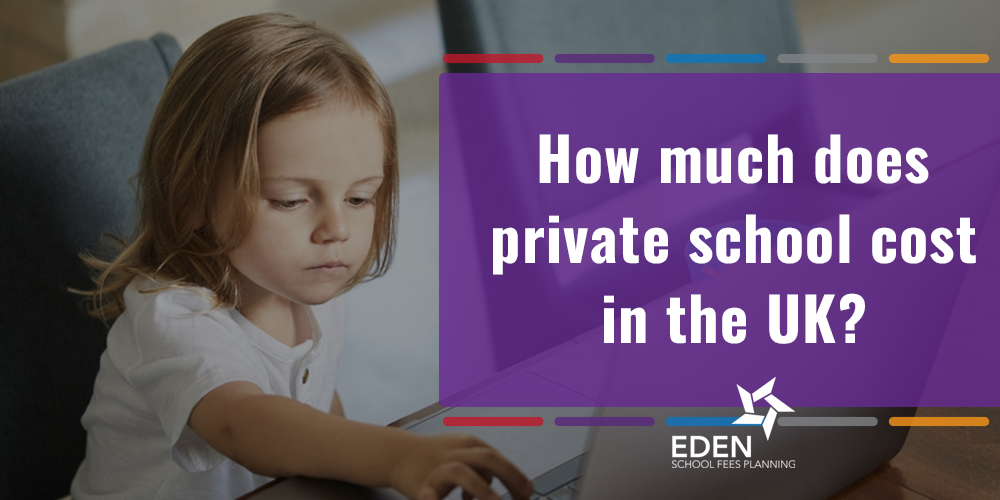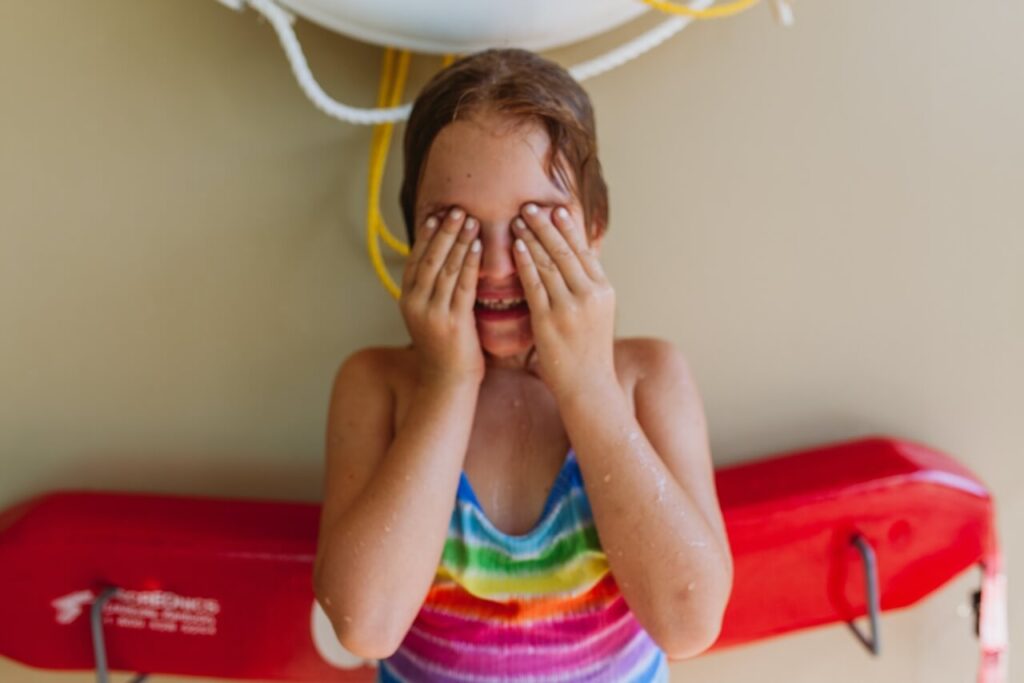
How much does private school cost in the UK? And why do private school fees vary so much?
Deciding whether to send your child to private school is a big financial decision. Can you really afford private school? Will you be able to fund private education for the whole of your child’s schooling?
School fees vary drastically across the UK, so it’s important you do your research and understand the differences between private schools and related costs. Luckily, this article should help you.
Let’s look at the detail of private school costs
The cost of sending your child to a private school in the UK varies with age depending on your child’s age.
We took a look at the ISC Census 2021, and found that average costs for preparatory (prep) schools – up to the age of 11 or 13, depending on the school – are around £8,700 per term for boarders or £4,700 for day school.
As children move on to senior school (to age 16) parents can expect to pay around £11,800 for boarding, or £5,300 for day school per term.
And once your child reaches sixth form, the average termly rates increase further to £12,600 for boarders and £5500 for day attendance.
As you can see, school fees can be a substantial regular commitment for many years. So how do things add up?
What’s the total cost of a private education per child?
Our job is to help parents financially prepare for paying private school fees, and part of this planning is understanding not just how much private school fees cost per month, but understanding the total cost per child.
Over the course of a child’s school career, private school fees could easily cost parents £300,000 or more.
That’s roughly ten times the average salary, and the costs tend to rise faster than inflation. Unlike a mortgage, private school fees increase, not decrease, over time.
Private school fees are a long-term commitment, and this is what we advise our clients. The last thing we want is for anyone to struggle further down the line, scrambling to pay private school fees. So don’t think of it as a monthly cost, think of it as a £300,000+ investment.
Sadly, this puts private schools out of reach for many families. But naturally, there are variations in fees between different schools and across different regions in the country. There are ways to find value and make savings on private school fees.
For example, as we’ve already seen, a day school could be around half the price of a boarding school, so consider whether your child would benefit greatly from a boarding environment, or whether they’d be better suited to a day setting.
Location, location, location: regional differences in private school fees
Like many areas of life, the cost of a private school can also depend on the location of the school. Those schools closer to, or within, London are likely to cost more than those further from the capital.
If, say, you’re looking for a school in the North West of England, the average day fees per term could be just £3,700. But by contrast, day places at a private school in London could top £6,000.
The ISC Census of 2021 found that there are almost 50 private schools in the UK that charge less than £2,000 per term for day attendance, so if cost is a central consideration for your family and you’re not tied to a particular location, it’s worth shopping around when looking for a school.
Prestige also plays a part
Of course, the region is only part of the story, and prestige plays a part in price too. There’s a premium for a well-known private school, so if you’re looking at places with big names like Eton or Harrow, you’ll be paying more still.
For example, Eton costs £14,698 per term (there are three terms in a year), which is significantly higher than the average boarding school.
Not-so-optional extras that add to private school costs in the UK
While school fees will represent the biggest outlay by far towards your child’s education, there are additional costs for things like kits, clubs and school trips.
When you start investigating the schools you’d like to send your child to, it’s a sensible move to find out exactly what else you’d need to fund.
To get you started, we’ve put together a list of extras that you may need to budget for. These are in addition to school fees and some, like uniforms, will be compulsory. But others will enhance your child’s experience so they can make the most of all the opportunities private school offers.
- School uniform, including kit for PE and games
- Sports equipment
- Membership to after-school clubs and societies
- Music lessons
- Musical instruments
- School trips and residentials
- Lunches, and other meals if your chosen day school provides wrap-around care
- Activities and trips during school holidays
As a general rule of thumb, we recommend you allow at least 10% in addition to school fees to cover the cost of extras in your child’s private education. You can pin down a more accurate figure by contacting the schools you’re interested in and asking for more details.
And since private schools operate as businesses, it’s important to remember that it’s sometimes possible to negotiate fees. If you’re able to get a better deal on your child’s education, you may have more resources available to fund the trips and activities that will enrich your child’s school experience and build lasting memories.
Is financial help available to fund private school fees?
Most private schools have scholarships and bursaries available for some pupils. It’s worth investigating whether your child could qualify for one or the other when you apply to a school, or if your circumstances change during your child’s education.
Scholarships for private school education
Scholarships are a reduction in the fees paid by parents of particularly gifted children. Schools offer scholarships within different disciplines – perhaps academic or in sports – and are awarded based on your child’s performance or attainment.
However, some schools offer honorary scholarships only, with a token gift of £60 or so to recognise outstanding achievement in a particular subject.
Bursaries for private school fees
Bursaries are available on a means-tested basis, to help families who would otherwise struggle to pay school fees. Some bursaries begin at 5% of the fees, others are more generous. Check with the school you’d like to apply to for more details on the bursaries available, and the criteria for eligibility.
If your child might be eligible to receive either funding option, it’s wise to learn more about bursaries and scholarships for private schools.
When making a decision about your child’s future, seeking experienced advice will help you ensure you’re maximising the potential of your own finances. Getting the most out of your situation can mean you can fund your child’s dream education without sacrificing your own lifestyle.
Is government funding available for children attending private school?
Private schools are also known as independent schools. That’s because they don’t receive any funding from the government and, as such, they’re entirely reliant on school fees to operate. In general, that means there’s no help available from the government to fund children attending private schools.
However, there may be an exception if your child has special educational needs. If an independent school is listed in section 1 of your child’s EHC plan and there’s no other school nearby that’s suitable for your child to attend, it’s possible that the Local Authority (LA) will pay the school fees. This is because they remain responsible for your child’s special educational provision, and will foot the bill if there’s no viable state school alternative.
Planning for private school fees
The financial implications of sending your child to a private school can be significant, so it’s important to plan early and plan well.
If you’re considering the benefits of private education for your child but you’re unsure whether that’s possible with your income and assets, remember that private school doesn’t necessarily have to come at the cost of your second home or your early retirement.
We can help you put together a School Fees Plan which includes the cost of private education and also your other financial goals. Get in touch to chat through the options: request a callback, or phone us on 0345 576 86 96.
Related Posts
How to find the right private school for your child
Does a private school education lead to a better career?
What to expect from private school entrance exams at different stages of education
Should you choose a private school that specialises in music or sport, or takes a broad approach to learning?
What private schools offer children with Special Educational Needs (SEN)
How the cost of living crisis could impact your ability to pay private school fees
The UK’s most affordable private schools: where can you find them?
What facilities do private schools offer?



